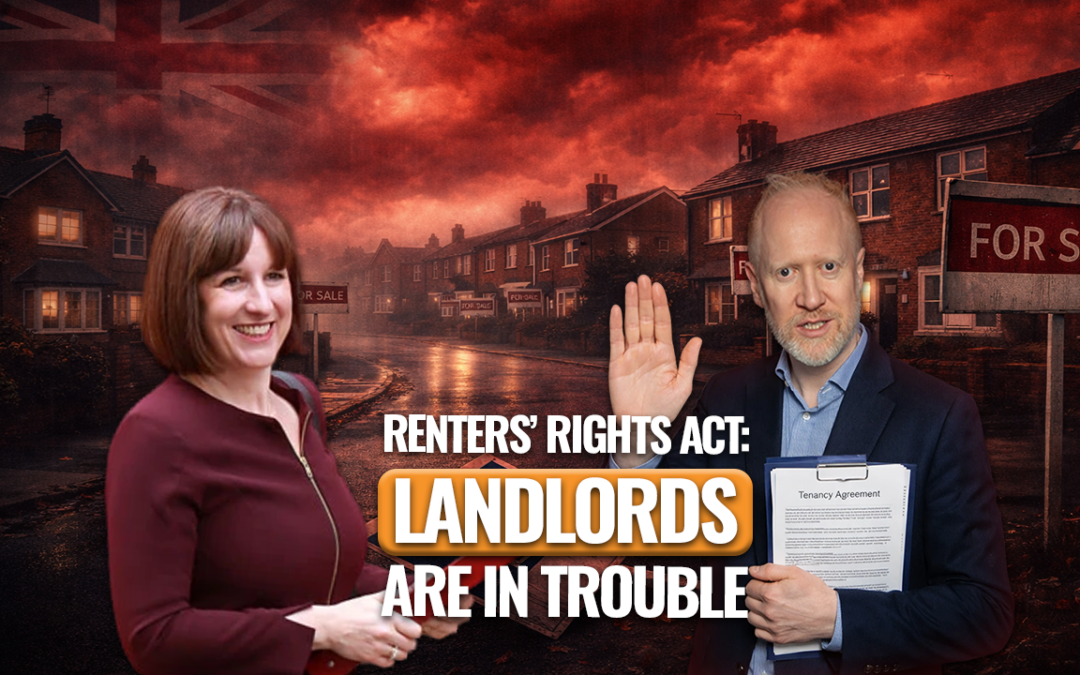Introduction: How to Protect Against Bad Tenants in 2026
If you’re a UK landlord wondering how to protect against bad tenants, now is the time to act. As a result, the Renters Reform Bill 2026 for landlords is set to change how tenancies operate, making it harder to remove problem tenants. To stay ahead, you need to avoid bad tenants UK before they ever get the keys. This means taking tenant checks and referencing UK seriously and having clear systems for landlord protection from bad tenants. Moreover, by doing this early, you’ll prevent problems before they start.
Bad tenants don’t just cost you rent, they cost time, energy, and peace of mind. Therefore, with the right preparation, you can protect your property and income while staying fully compliant with the new rules.
For a helpful overview of landlord compliance steps, visit the Which? landlord checklist.
A Costly Lesson: When a Tenant Knows the System Better Than You
Let me share a real experience that taught me how vital it is to know how to protect against bad tenants. For example, I once let a property to a woman who worked for a debt charity.
She was polite, professional, and paid her first month’s rent and deposit right on time. Everything looked perfect. However, a few months later, she stopped paying rent altogether. From that point on, everything changed, and the true challenge began.
Because of her background, she knew exactly what landlords could and couldn’t do legally. Consequently, she used that knowledge to delay the eviction process and avoid responsibility.
What started as a “safe” tenancy turned into months of frustration, lost income, and legal stress. Eventually, it became clear that prevention would have been far easier than reaction.
That experience reminded me that landlord protection from bad tenants isn’t about luck. Instead, it’s about systems, preparation, and consistent due diligence.
Why the Renters Reform Bill 2026 for Landlords Changes Everything
The Renters Reform Bill 2026 for landlords is one of the biggest shifts in the UK rental market. In particular, by removing Section 21, it will no longer be possible to evict tenants without a valid reason. As a consequence, landlords will need stronger procedures from the very beginning.
To avoid bad tenants UK, you’ll need to strengthen your vetting and record-keeping. In addition, every landlord should understand how the law affects their responsibilities and rights. Likewise, tenants will have greater protection, so balance and preparation are key.
When it comes to how to protect against bad tenants, the key is prevention. After all, it’s much easier to reject a risky applicant than to remove a bad tenant once they’ve moved in.
Step 1: Strengthen Tenant Checks and Referencing UK
Your first line of defence is your referencing process. Proper tenant checks and referencing UK can stop most bad tenants before they even sign. In other words, prevention through referencing is your strongest legal defence. For instance, conduct a full credit check, verify employment income, and contact previous landlords.
Here’s how to do it effectively:
-
Conduct a full credit check and verify employment income.
-
Contact previous landlords for genuine references.
-
Ask for proof of ID and right-to-rent documentation.
-
Meet or video-call the tenant before agreeing to the tenancy.
-
Keep digital copies of everything for your records. Additionally, having a digital trail simplifies your response if a dispute arises.
By building a thorough process, you’ll significantly reduce the risk and demonstrate your professionalism if issues ever reach court.
Step 2: Systems for Landlord Protection from Bad Tenants
Documentation protects you. To achieve full landlord protection from bad tenants, make sure you have the right paperwork in place. Furthermore, even experienced landlords need consistent systems to avoid confusion or claims of unfair treatment, make sure you have:
-
A legally up-to-date tenancy agreement
-
A signed, photo-supported inventory
-
Written confirmation of rent due dates and arrears processes
-
A log of maintenance requests and repairs
Courts care about evidence, not stories. Therefore, the better your documentation, the easier it is to prove your case. Your paperwork is your shield. Even the most experienced landlords need a consistent system to avoid confusion or claims of unfair treatment.
Step 3: How to Protect Rental Income from Bad Tenants
Financial preparation is part of knowing how to protect against bad tenants. Because rent arrears can happen to anyone, you should create a safety buffer and use protection tools:
-
Rent guarantee insurance
-
Legal cover for eviction and disputes
-
A maintenance reserve fund
-
Regular property inspections
These steps don’t just help you recover losses, they prevent them. Ultimately, proper landlord protection from bad tenants ensures your property business runs smoothly even in challenging situations.
Step 4: Avoid Bad Tenants UK with Education and Support
The best landlords are always learning. Therefore, attend property meetings, network with others, and stay up to date with legal changes. In the same way, surrounding yourself with knowledgeable investors improves your decision-making.
Knowing how to avoid bad tenants UK comes from knowledge, not chance. As such, keep refining your tenant checks and referencing UK process. Use a tenant screening checklist UK to standardise every decision. The more consistent you are, the more control you keep.
Step 5: Prepare for the Renters Reform Bill 2026 for Landlords
As new regulations take effect, you’ll need to adapt your approach. Consequently, the Renters Reform Bill 2026 for landlords will strengthen tenant rights and put more pressure on compliance.
To stay ahead:
-
Keep all certifications current (EPC, gas, electrical).
-
Use correct deposit schemes.
-
Issue proper documentation at move-in.
-
Regularly review and update your agreements.
Being proactive now will help you stay compliant later and protect your reputation as a professional landlord. Overall, this preparation is your best defence.
Final Thoughts: Stay Informed, Stay Protected
Being a landlord isn’t just about collecting rent. It’s about protecting your income, your assets, and your peace of mind. In conclusion, the landlords who know how to protect against bad tenants, and take consistent action, will be best prepared for the changing market.
With the right tenant checks and referencing UK, strong landlord protection from bad tenants, and full awareness of the Renters Reform Bill 2026 for landlords, you’ll safeguard your property and secure long-term results.
If you want to learn practical strategies directly from experienced investors, come along to your local property investors network (pin) meeting. You’ll meet other landlords, share real-world experiences, and discover proven ways to avoid bad tenants UK and build a safer, more profitable portfolio.
If it’s your first meeting, use voucher code BLOG when booking your ticket to attend for free.
Protect your investments, stay compliant, and join a supportive community that’s helping landlords like you grow with confidence. Altogether, these small steps combine to make a huge difference in your long-term success.
Frequently Asked Questions
1. How can landlords protect against bad tenants?
Landlords can protect against bad tenants by carrying out thorough tenant checks and referencing UK, including credit checks, employment verification, and previous landlord references. Always use clear tenancy agreements, detailed inventories, and maintain good communication to reduce disputes.
2. What’s the best way to avoid bad tenants UK?
To avoid bad tenants UK, never rush the tenant selection process. Meet applicants in person, confirm their affordability, and ask for a guarantor when needed. Following a structured tenant screening checklist UK helps you identify reliable tenants before signing a contract.
3. How will the Renters Reform Bill 2026 affect landlords?
The Renters Reform Bill 2026 for landlords will remove Section 21, meaning landlords will no longer be able to evict tenants without a valid reason. This increases the need for landlord protection from bad tenants through proper documentation, compliance, and evidence-based management.
4. What insurance do landlords need for protection from bad tenants?
Landlords should consider rent guarantee insurance, legal expenses cover, and property damage protection. These policies form part of a good strategy for landlord protection from bad tenants, helping safeguard rental income and reduce financial risk.
5. Where can I learn more about protecting my property from bad tenants?
Attend a local property investors network (pin) meeting to learn directly from experienced landlords and investors. You’ll discover proven strategies on how to protect against bad tenants and how to build a compliant, profitable portfolio. Use voucher code BLOG if it’s your first event to attend for free.
About property investors network
Founded in 2003 by Simon Zutshi, property investors network (pin) is the UK’s longest-running and pioneering property training and networking organisation. We cater for all levels of investors from beginners learning how to start in property to experienced professionals looking to scale. With monthly property networking meetings across the UK, online workshops and hands-on coaching programmes, pin has supported thousands of people to build knowledge, confidence and profitable portfolios. Unlike estate agents or deal sellers, pin focuses purely on UK property training and education, providing a safe and inspiring community for anyone serious about property investing.











